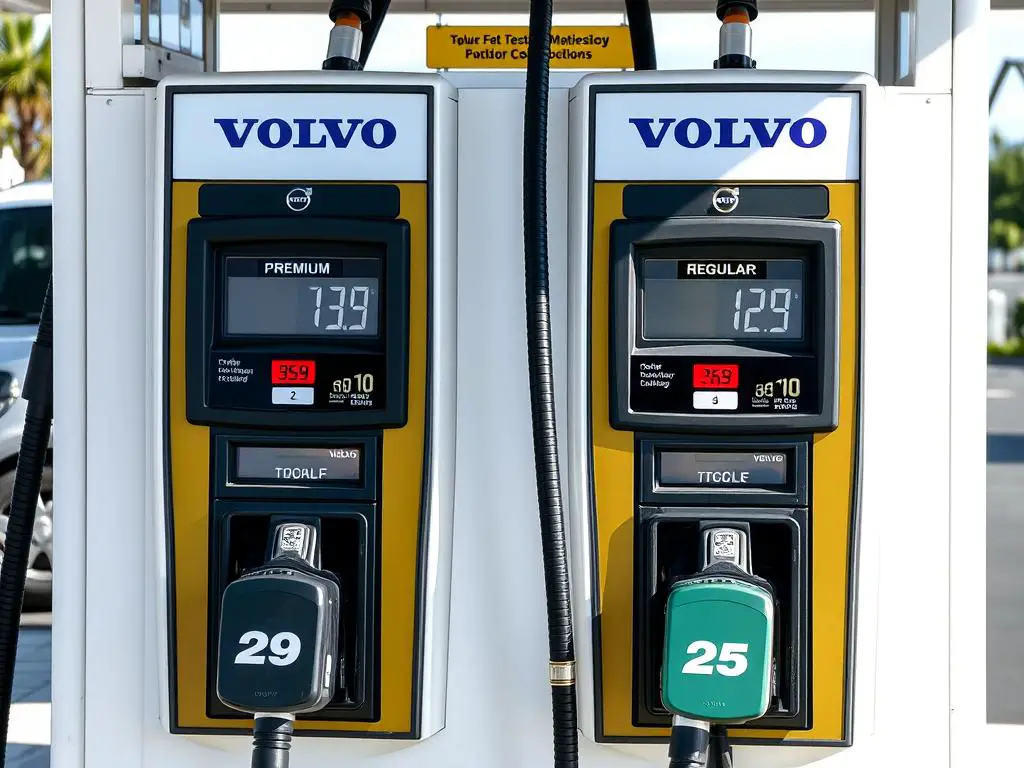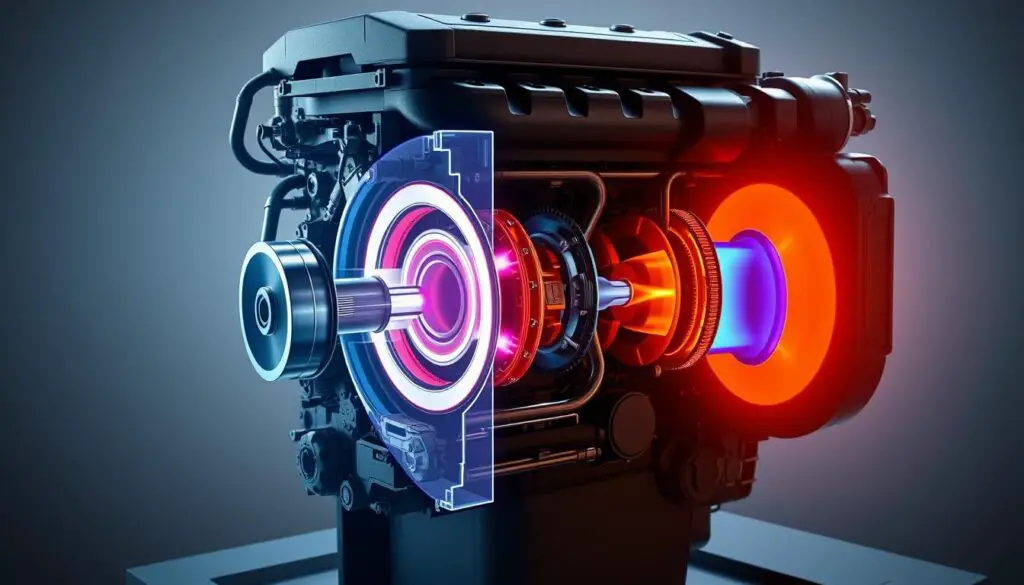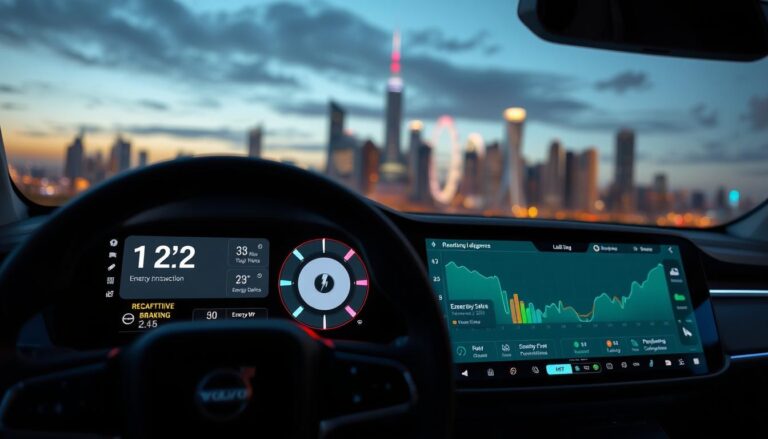If you’re a Volvo owner or considering purchasing one, you’ve likely wondered about the fuel requirements for these Swedish luxury vehicles. The question “does a Volvo require premium gas?” is common among owners looking to balance performance with fuel costs.
This comprehensive guide will explore Volvo’s official fuel recommendations, compare premium versus regular gas options, analyze cost implications, and provide practical advice for maintaining your vehicle’s performance regardless of which fuel you choose.
Volvo’s Official Fuel Recommendations
Volvo fuel cap showing premium fuel recommendation
According to Volvo’s official documentation, most Volvo engines are designed for optimal performance using premium unleaded gasoline with an octane rating of 91 or higher (AKI – Anti-Knock Index). However, the minimum octane requirement for many models is 87 AKI, which is regular unleaded gasoline in the United States.
Let’s examine the specific fuel requirements for popular Volvo models:
| Volvo Model | Recommended Fuel | Minimum Requirement | Engine Type |
| XC90 | Premium (91+ octane) | Regular (87 octane) | B5/B6 (Mild Hybrid) |
| XC60 | Premium (91+ octane) | Regular (87 octane) | B5 (Mild Hybrid) |
| XC40 | Premium (91+ octane) | Regular (87 octane) | B5 (Mild Hybrid) |
| S60 | Premium (91+ octane) | Regular (87 octane) | B5 (Mild Hybrid) |
As stated in Volvo owner’s manuals: “Volvo engines are designed for optimum performance on unleaded premium gasoline with an octane rating AKI of 91, or above. The minimum octane requirement is AKI 87 (RON 91).”
Warranty Implications of Fuel Choice
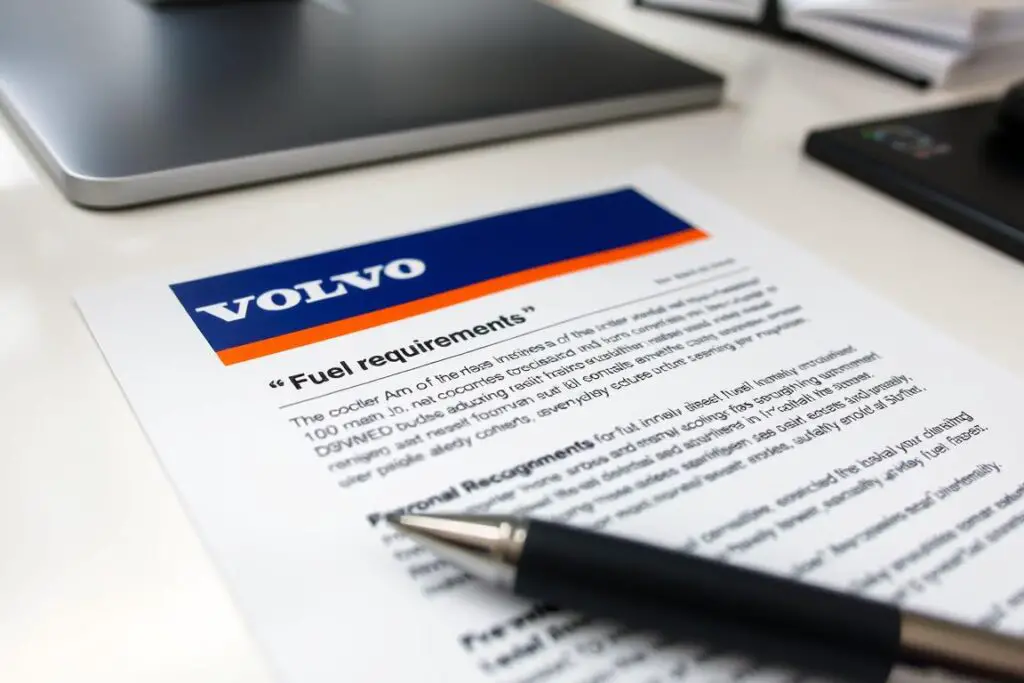
A common concern among Volvo owners is whether using regular gasoline instead of premium will void their warranty. Here’s what you need to know:
Important: Using regular gasoline (87 octane) when premium is recommended but not required will NOT void your Volvo’s warranty. However, using fuel with an octane rating below the minimum requirement (typically 87 octane) could potentially affect warranty coverage for fuel system or engine damage directly related to improper fuel use.
Volvo’s warranty documentation makes a clear distinction between “recommended” and “required” fuel specifications. The language typically states that engines are “designed for optimum performance” with premium fuel, while establishing a minimum octane requirement.
If your Volvo experiences issues that could be attributed to using lower octane fuel than the minimum requirement, you might face challenges with warranty claims. However, most modern Volvos can adapt to regular gasoline without immediate problems, though with some performance compromises.
Cost Analysis: Premium vs. Regular Gas for Your Volvo
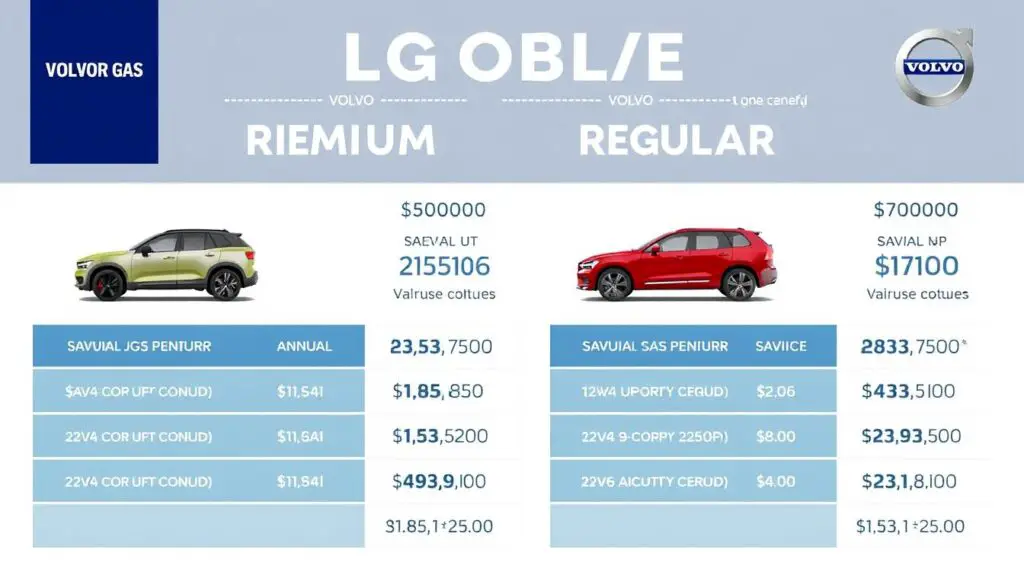
Let’s analyze the financial implications of choosing premium versus regular gasoline for your Volvo. This cost analysis will help you determine whether the performance benefits of premium fuel justify the additional expense.
Annual Fuel Cost Comparison
For this calculation, we’ll use the following assumptions:
- Average annual driving distance: 15,000 miles
- Current average fuel prices (US): Regular ($3.50/gallon), Premium ($4.20/gallon)
- Price difference: $0.70 per gallon
| Volvo Model | MPG (Premium) | MPG (Regular) | Annual Cost (Premium) | Annual Cost (Regular) | Difference |
| XC90 B5 AWD | 24 combined | 22 combined | $2,625 | $2,386 | $239 more for premium |
| XC60 B5 AWD | 25 combined | 23 combined | $2,520 | $2,283 | $237 more for premium |
| S60 B5 FWD | 30 combined | 27 combined | $2,100 | $1,944 | $156 more for premium |
Note: The MPG figures for regular gas are estimated based on owner reports and testing, as manufacturers typically only publish official figures for recommended fuel types. Actual differences may vary based on driving conditions, vehicle maintenance, and individual driving habits.
Is the Extra Cost Worth It?
While premium gas costs more per gallon, the improved fuel economy often partially offsets this difference. Additionally, consider these factors when making your decision:
Beyond Direct Costs
- Potential long-term engine maintenance savings
- Improved driving experience and performance
- Possible higher resale value from proper maintenance
- Reduced carbon buildup and cleaner engine internals
When Regular Might Be Acceptable
- Primarily city driving with minimal acceleration demands
- Older Volvo models with less sensitive engine management
- Temporary budget constraints (occasional use is fine)
- Non-turbocharged models may show less performance difference
As one Volvo forum member noted: “The cost difference in a 10 gallon fill up is like $3.00 in my area. Well worth it to have the better fuel.”
Exceptions and Practical Tips for Volvo Owners

Special Considerations for Turbocharged Models
Turbocharged Volvo engines deserve special attention when it comes to fuel selection. These high-performance engines compress air at higher ratios, making them more susceptible to knock when using lower octane fuels.
Warning for Turbo Owners: Using regular gasoline in turbocharged Volvo models can be particularly problematic during high-load conditions. As one forum member stated: “Run regular in an 850 Turbo, get it into boost, and you’re looking at some valve damage.” If you own a turbocharged Volvo, the performance and longevity benefits of premium fuel are more significant.
Practical Fuel Tips for Volvo Owners
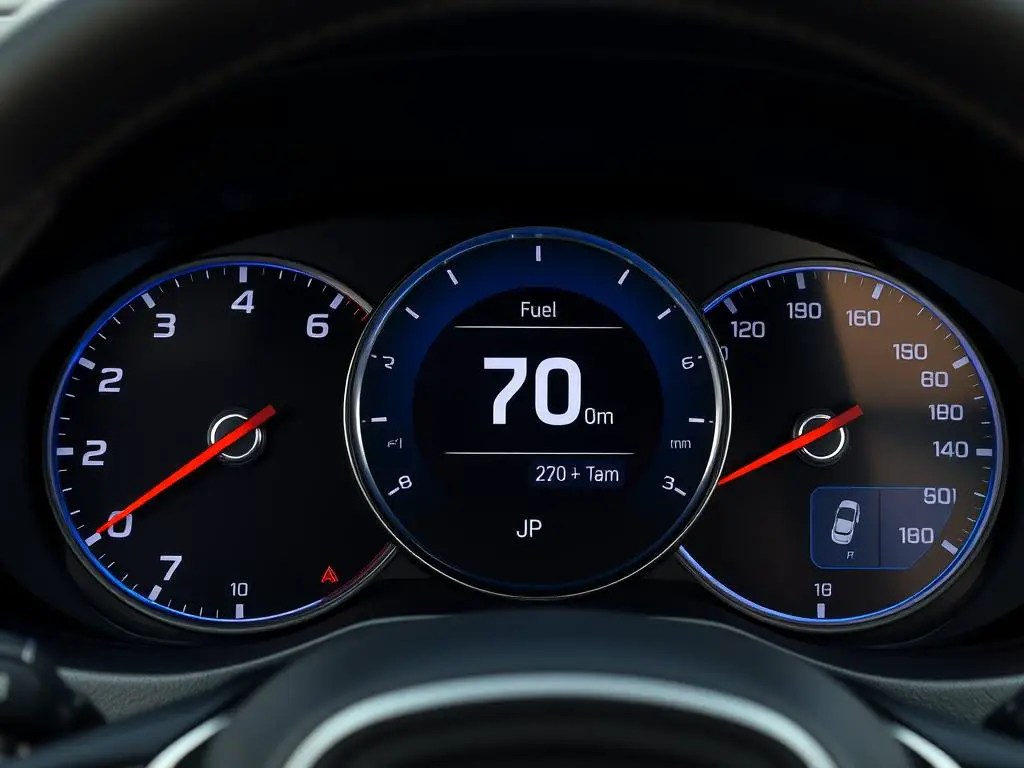
When to Definitely Use Premium
- During hot weather or high-temperature conditions
- When towing or carrying heavy loads
- For high-performance or spirited driving
- In all turbocharged Volvo models
- When driving at high altitudes
Maximizing Fuel Economy
- Maintain proper tire pressure
- Follow recommended service intervals
- Replace air filters regularly
- Use quality fuel from reputable stations
- Consider fuel additives for cleaning if using regular gas
Fuel Additives and Alternatives
If you choose to use regular gasoline in your Volvo, consider these options to help mitigate potential issues:
- Fuel System Cleaners: Products like Lucas Upper Cylinder Lubricant or quality fuel system cleaners can help reduce carbon buildup when using regular gas.
- Octane Boosters: These additives can temporarily increase the octane rating of regular gasoline for situations requiring higher performance.
- Mixed Approach: Some owners use premium for summer driving or long trips, and regular for short commutes in cooler weather.
Frequently Asked Questions About Volvo Fuel Requirements
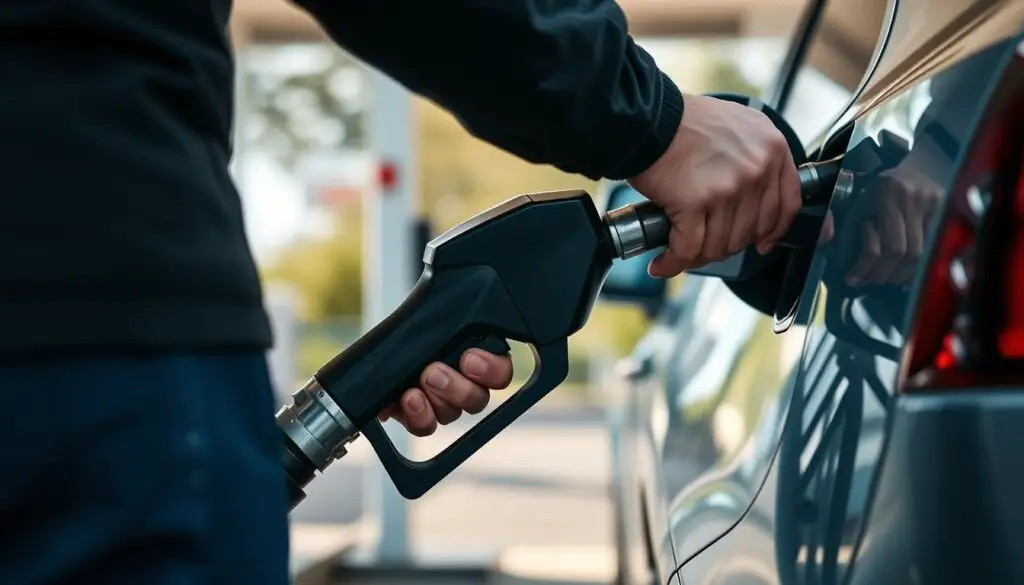
What happens if I accidentally use regular gas in my Volvo once?
A single tank of regular gasoline in a Volvo designed for premium fuel won’t cause immediate damage. Modern Volvos have knock sensors that will detect the lower octane and adjust engine timing accordingly. You might notice slightly reduced performance and fuel economy, but no lasting harm will occur. Simply return to using premium fuel at your next fill-up.
Will using regular gas void my Volvo’s warranty?
Using regular gasoline (87 octane) when premium is recommended but not required will not void your Volvo’s warranty. However, if you use fuel with an octane rating below the minimum requirement specified in your owner’s manual, and this directly causes engine damage, warranty coverage for those specific issues might be affected.
Do older Volvo models require premium gas?
Many older Volvo models, particularly those with naturally aspirated (non-turbo) engines, can run adequately on regular gasoline. However, even older models with high-compression engines or turbocharged systems were designed for premium fuel. Check your specific model’s owner’s manual for the manufacturer’s recommendation.
Does a Volvo hybrid or plug-in hybrid require premium gas?
Yes, Volvo hybrid and plug-in hybrid models like the XC60 Recharge and XC90 Recharge still require premium fuel for their gasoline engines. The electric components don’t change the fuel requirements for the internal combustion portion of the powertrain.
Can I mix premium and regular gas in my Volvo?
Yes, you can mix premium and regular gasoline in your Volvo’s tank. The resulting octane rating will be somewhere between the two, depending on the ratio. This can be a practical approach when transitioning between fuel types or if premium isn’t available. However, for optimal performance, consistent use of the recommended fuel type is best.
Conclusion: Does Your Volvo Really Need Premium Gas?

After examining Volvo’s official recommendations, performance implications, and cost considerations, we can provide a clear answer to the question: Does a Volvo require premium gas?
While most Volvo models are designed for optimal performance with premium gasoline (91+ octane), they can function on regular gasoline (87 octane) with some compromises in performance and efficiency. Turbocharged models benefit significantly more from premium fuel than naturally aspirated engines.
The decision ultimately comes down to your priorities as a Volvo owner:
- If you prioritize maximum performance and long-term engine health: Use premium fuel as recommended by Volvo.
- If you prioritize immediate cost savings and primarily drive in low-stress conditions: Regular fuel may be acceptable for most non-turbocharged models.
- If you own a turbocharged Volvo: The benefits of premium fuel are more significant and worth the additional cost.
Remember that modern Volvos are sophisticated machines with advanced engine management systems that can adapt to different fuel types. While they’ll run on regular gas, they were engineered to perform their best with premium fuel. Consider your driving habits, local fuel prices, and specific model when making your decision.

